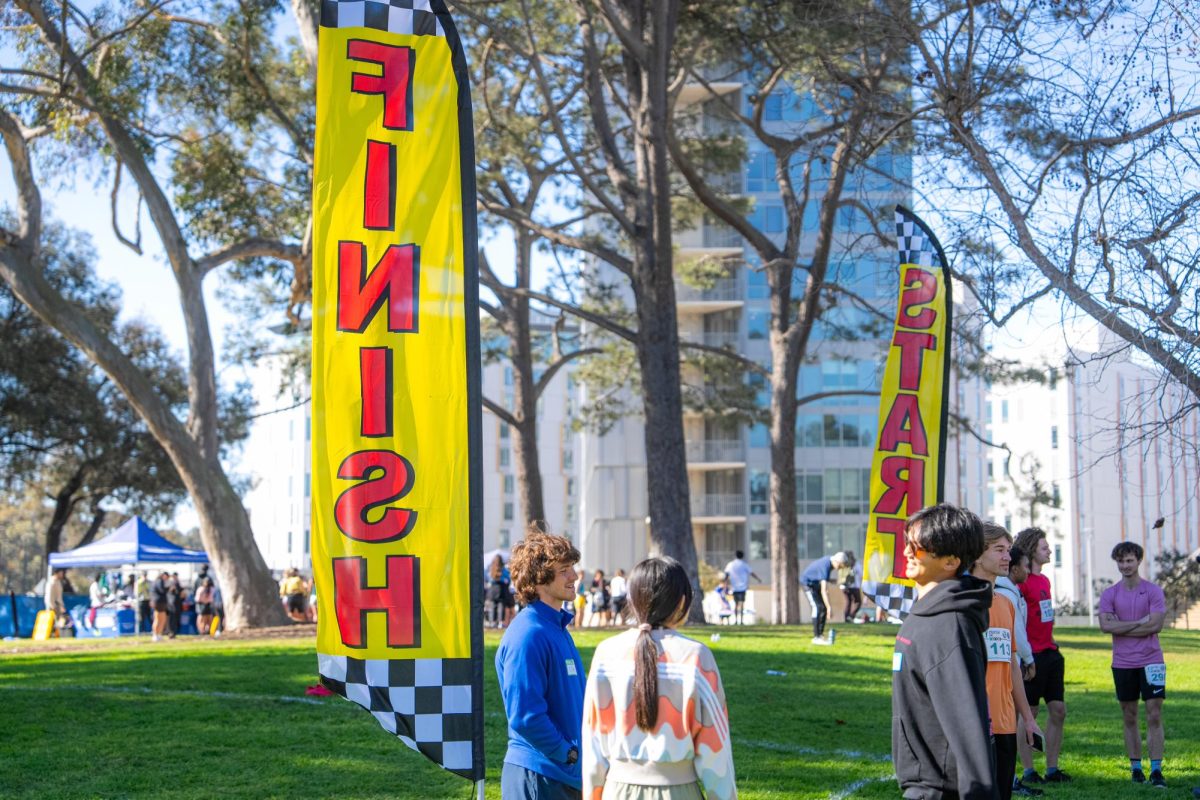UC San Diego’s annual Triton 5K brings together runners from all over San Diego for a 3.1-mile-long race. When the University canceled the event this year for unknown reasons, Strides Running Club stepped in to host its own version on Sunday, Feb. 2.
The Triton 5K is a major event for UCSD’s running community, giving both casual and competitive runners the chance to come together and participate in a fun and fair race. With a wide range of times, Strides data showed that the average person finished the race in 25 to 30 minutes.
Third-year Jonathan Ho, president of Strides since Fall 2024 hoped that people of all skill levels could come and enjoy the event, whether to compete or cheer on their friends.
Holden Flett, a second year and member of Strides, emphasized the importance of the race being accessible to all skill levels.
“One thing I really do appreciate from a running club standpoint is how we accommodate different skill levels. Especially this year, we’ve gotten better at catering to a wide array of runners,” Flett said.
To accommodate less experienced runners during the event, an organizer rode his bike at the front of the group to ensure nobody got lost during the race.
For competitive runners, the Triton 5K is an opportunity to test their limits against other runners at their level.
Liam Lott, a second-year Strides officer, participated in the race. He completed the race with a time of 17:30 and was enthusiastic about “any opportunity to be competitive.”
Ho discussed the challenging process of planning the 5K. Traditionally, the Triton 5K occurs during Family Weekend in October. Strides originally set out to host the event in the fall, but they were forced to postpone it until Winter Quarter.
“We had to get a lot of confirmation from different departments, so there was too much of a time constraint. It’s been an ongoing development for a few months now,” Ho said. He also spoke about the difficulty of contacting the overseers of university departments, including the University of California Police Department, the Fire Marshals, Special Events Parking, and the club advisor, to get approval to incorporate parts of campus in the race course.
Another major aspect of preparing for the race was outreach. Ho explained that UCSD’s traditional Triton 5K had many more resources available to spread the word about the event — for example, it could send mass emails to every student, significantly widening its outreach. Strides had to think outside the box to tell the public about its own version of the 5K.
“We put flyers all over campus. We put it up on the TVs in Price Center. Anything to spread the word as much as possible,” Ho said.
This outreach was successful, as approximately 350 people ran in the 5K, a number exceeding a typical Strides run. Lott reflected on the event and the potential for another Strides 5K in the future.
“After how successful this one was, I see no reason why we wouldn’t do it again,” Lott said to The UCSD Guardian.
Although Strides’ Triton 5K was an interaction of a longstanding tradition, the club made its version of the event unique. With hand timers, refreshments, and a more laid-back environment, Strides has created something new for UCSD runners to look forward to.
“In a way, it’s a bit more personable,” Ho said. “We’re all college students. We don’t all have a lot of time and resources. For us to just be able to do hand-timing or smaller things, that makes it more authentic in a way.”










